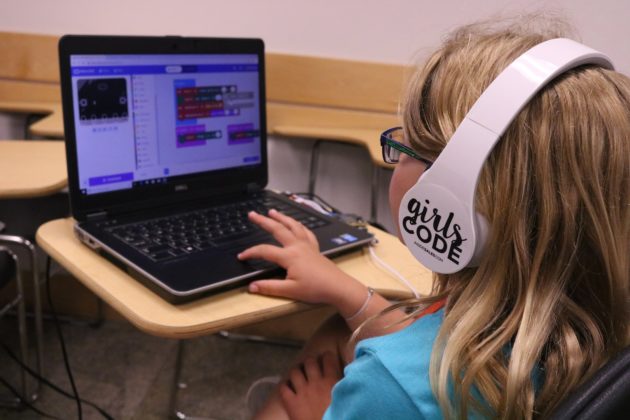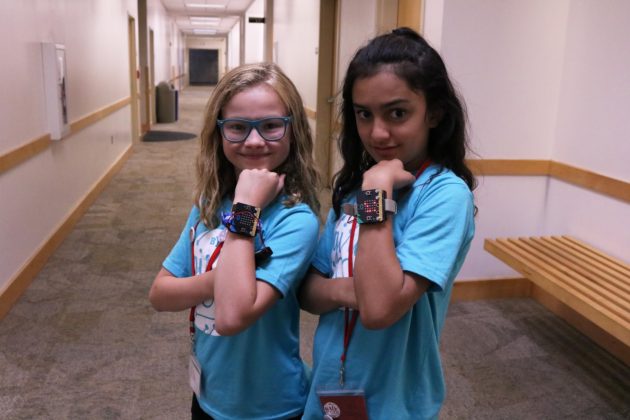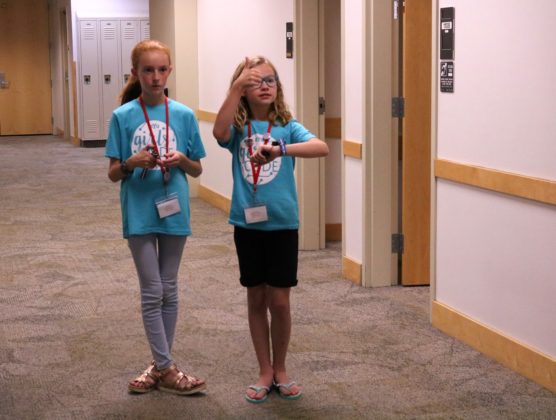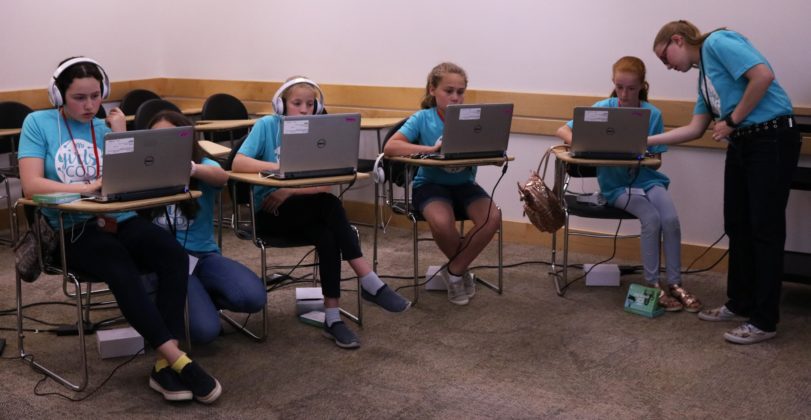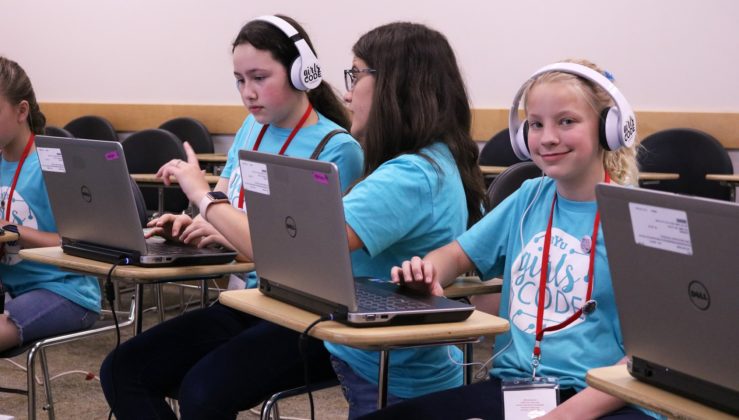Read this story in Portuguese here.
BYU youth science camps are seeking to close the gap between the number of men and women in STEM fields by reaching out to elementary school and junior high girls.
“These girls can do anything they want to do,” said BYU Computer Science Women’s Initiative mentor Angela Jones. “They just have to have the confidence that they can do it.”
Last week, BYU hosted the second annual Girls Code camp. Forty girls ages 8-11 participated in a week of activities designed to develop their computational thinking skills and teach them basic computer science principles.
Camp activities included hands-on engineering crafts and puzzles, one-on-one coding instruction, a presentation from BYU animation students and a chance for all the girls to share their projects with their parents at the end of the week.
Girls Code is part of the BYU Computer Science Women’s Initiative, a program which aims to recruit, mentor and retain female computer science students. Computer science is a male-dominated field, so the initiative seeks to help women picture themselves in computer science careers.
According to Jones, that’s why they chose such a young age group for the Girls Code camp. At that age, “the stereotypes haven’t been fully set yet, and we feel like we can influence that age very well,” Jones said.
Girls Code directors worked with the Title IX office to ensure that the girls-only camp complied with school regulations. Title IX coordinator Tiffany Turley said they were advised by the General Council and would ensure equal access to coding camps to all interested parties.
“We do want to make sure we’re offering equal opportunities to all boys and girls and community members,” Turley said.
Other BYU youth camps have also focused on introducing girls to the sciences. Chip Camp and Chem Camp — youth camps which teach electrical engineering and chemistry, respectively — both set aside slots for female students and highly encourage girls to participate.
“We do indeed want to attract lots of girls, so we specify 50% of the slots are girls, 50% are boys,” said Chem Camp co-director Daniel Ess.
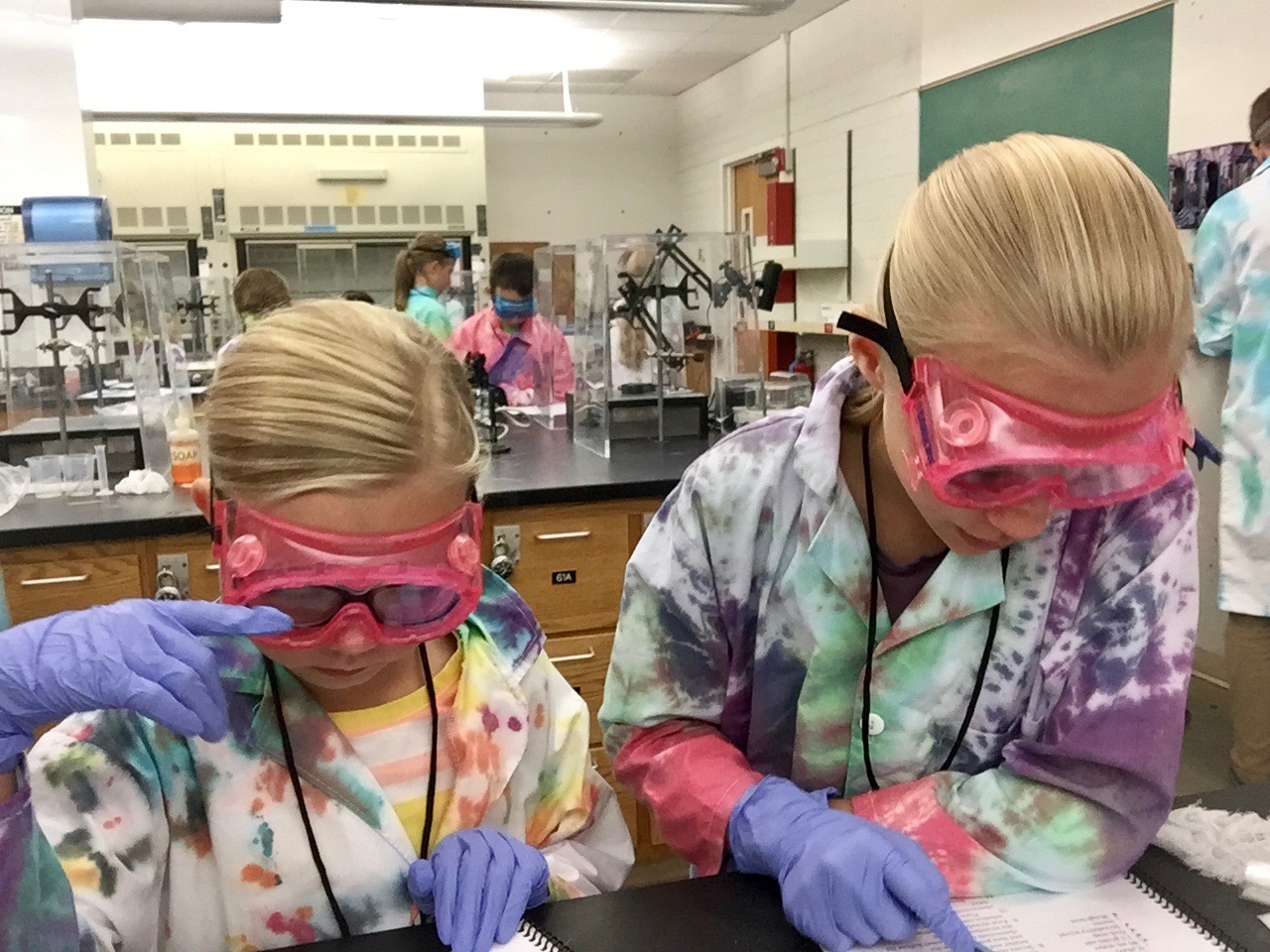
Like Girls Code, Chem Camp has also seen the importance of introducing girls into the scientific community at a young age. Ess said the number of girls applying for Chem Camp tapers off significantly as the girls get older.
“Our goal is to give the girls an experience where they see themselves as a scientist, and that identity will help them through these years when so many girls lose interest,” said Chem Camp co-director Jennifer Nielson.
Chip Camp accepts seventh and eighth-grade students for the same reason — those formative years are the years in which students make core decisions about what they like and want to pursue in the future.
“Female students weren’t getting enough support at that point,” said engineering professor Aaron Hawkins. “Unless they were encouraged and thought, ‘Okay, this is something I can do, it’s something I’m interested in,’ then they were very unlikely to pursue it in the future.”

Jones also noted it’s easier for young girls to picture themselves in the field if they have a female role model to look up to. Many undergraduate women in STEM programs have benefited from female mentorship.
Chip Camp co-director and sophomore electrical engineering student Gracie Richens said she was inspired by her mom, who studied engineering and later became a medical doctor.
“I got to go see (my mom and her friends) receive awards at the American Medical Associations and be on boards at the hospital,” Richens said. “They were the ones who were making decisions and making changes, and I wanted to be them.”
Girls Code counselor Mads Reinhard said she was influenced by a mission companion who encouraged her to take an introductory computer science course. While in the course, a female Ph.D. student helped her with homework and labs.
“I don’t think I could have done it … without any support (from other women),” Reinhard said.
Richens said the end goal is to see all students, female and male, become excited about STEM topics and pursue education and careers in those fields. By building interest at a young age, these camps help work toward a more equitable future.
Girls bring a “unique perspective” to STEM fields, Richens added. “They can impact the same world that the boys can.”

